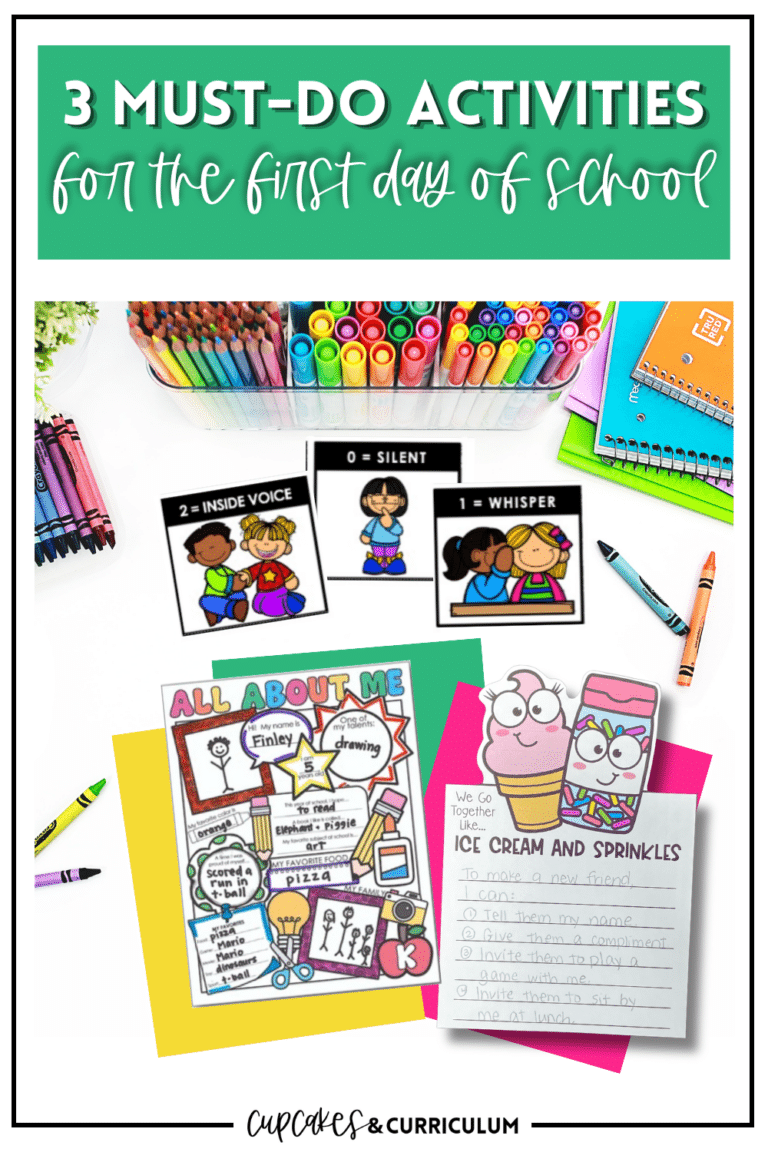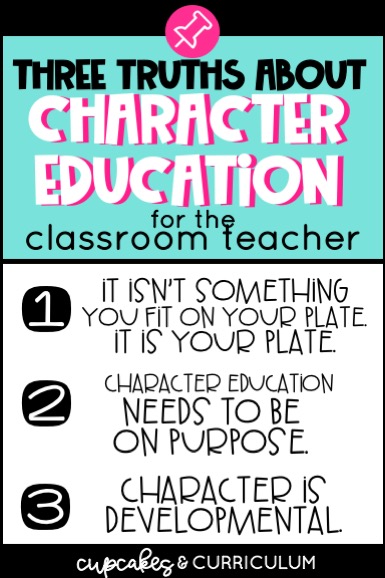
 How can we teach our students that doing the right thing is important, even when nobody is looking? How can we give them an intrinsic motivation to be what we call good people? From my experience, the answer to those question lies in character education.
How can we teach our students that doing the right thing is important, even when nobody is looking? How can we give them an intrinsic motivation to be what we call good people? From my experience, the answer to those question lies in character education.
Character education has been a buzzword in the teaching community for a long time, but do we all really know what it truly means to “do” character education in our classrooms?
Character education is not something you fit on your plate… it IS your plate.
As teachers, we know that the best learning happens when our students feel safe, loved, appreciated, and challenged. We know that our classroom needs to feel like a family of people that work together and care about each other. Without this foundation, how can we expect to help our students reach their full potential?
The truth is, they won’t reach their full potential in our classroom without that sense of community.
And that is why character education is not an option that we may or may not have time for – just imagine eating Thanksgiving dinner without a plate.
Character education happens whether you like it or not – you don’t do it on purpose, but you are [I assume] an inherently good person. Good people show others how to be good people… just by being.
So the question becomes- HOW are you going to shape the character of your students while they are in your care? Teachers have a huge responsibility – we have to be intentional about character education. Just “being” isn’t good enough for us.
Which leads us to…
Just like learning to walk and talk, learning the intrinsic motivation to be a good person is developmental. We need to reach our students cognitively, emotionally, and behaviorally to help them develop their character.
Cognitively, they need to know what kinds of things good people do and say. They need to learn about words like perseverance and respect. Kids need explicit instruction from you and concrete examples to generalize in their minds.
Emotionally, they need time to reflect and develop the ability to think outside of oneself. They need to understand that things they do have an effect on people around them.
Behaviorally, they need opportunities to put into practice the words and concepts they are learning, and feel the intrinsic reward for being a good person.
We wouldn’t expect our students to watch one video on using capital letters and then be able to always use capital letters correctly, would we? No, because that is not a developmentally appropriate way to get the results we desire.
Well, the same goes for character education. Can you really expect to have one assembly about being nice to everyone, and then sit back and watch acts of kindness happening all year? Of course not.
After months of research and years in a classroom, I am excited to have finally developed my own solution – and of course, I’ll be sharing with you!
Readers With Character is a 40-week character education and social skills curriculum that exemplifies all of the truths listed above.
Character Education should be the plate, which is why Readers With Character is not designed to just be a standalone lesson done in your classroom once per week. It is designed as an integrated curriculum, with visuals, concepts, and recognition of core values present all day, every day.
Readers With Character is an intentional curriculum– 15 minutes per day of intentional, to be exact. In the curriculum, I provide detailed lesson plans for every single day. And since I know that we barely have time for bathroom breaks let alone explicit character ed instruction, I’ve combined it with a fun read aloud (one mentor text per week) that can be integrated with other parts of your grade-level curriculum AND made sure that each day’s plan can realistically be done in just 15 minutes.
Readers With Character is also developmentally appropriate – Students learn relevant vocabulary and concepts through the mentor text and their weekly journal. Through class meetings, they reflect and talk not only about what being a good person is, but also about WHY being a good person is so important. Finally, they get to show their learning by doing… as each weekly focus gets added to your bulletin board banner, they are reminded of all they have learned and expected to be showing in their interactions with peers and adults.
Let me know what kinds of things you’d like to see in this curriculum – I am always looking for teacher input on what to add to make this even better for YOU!
